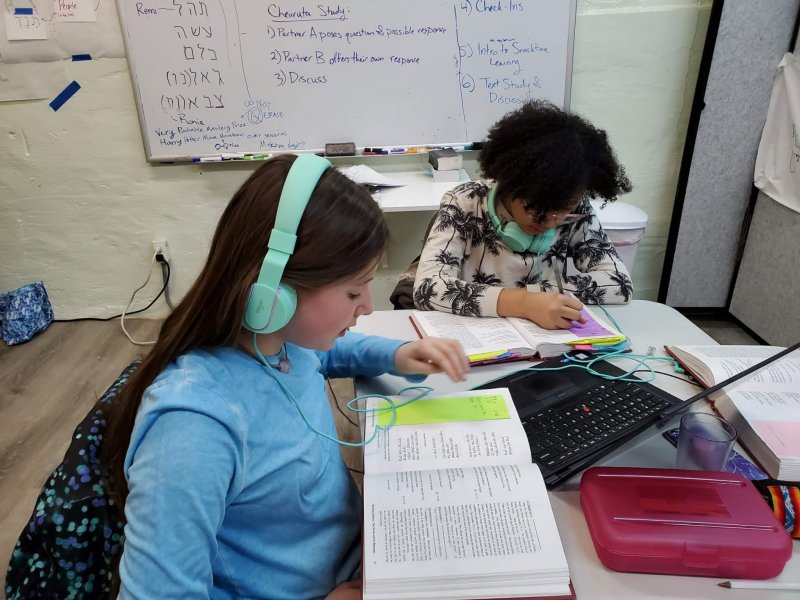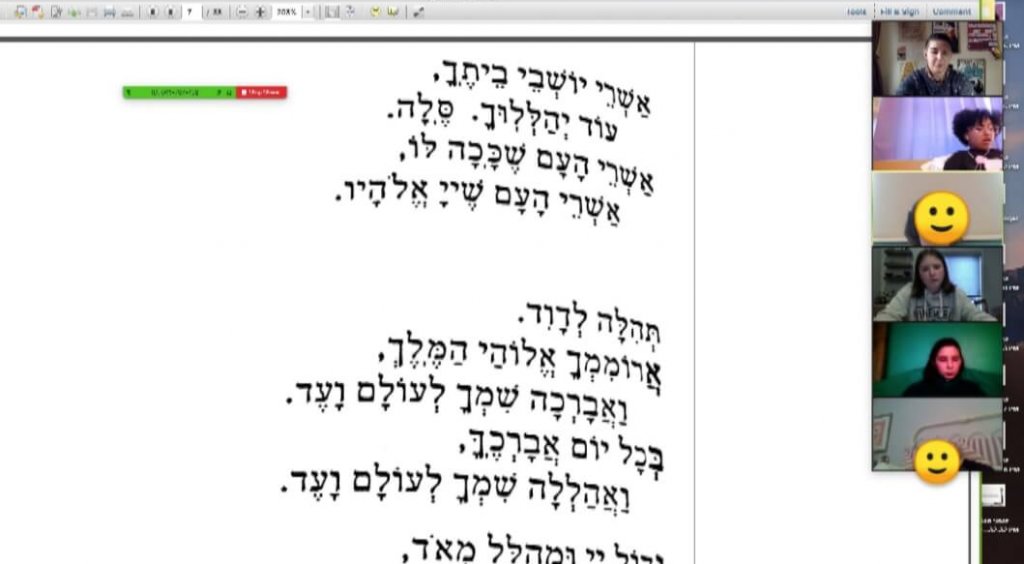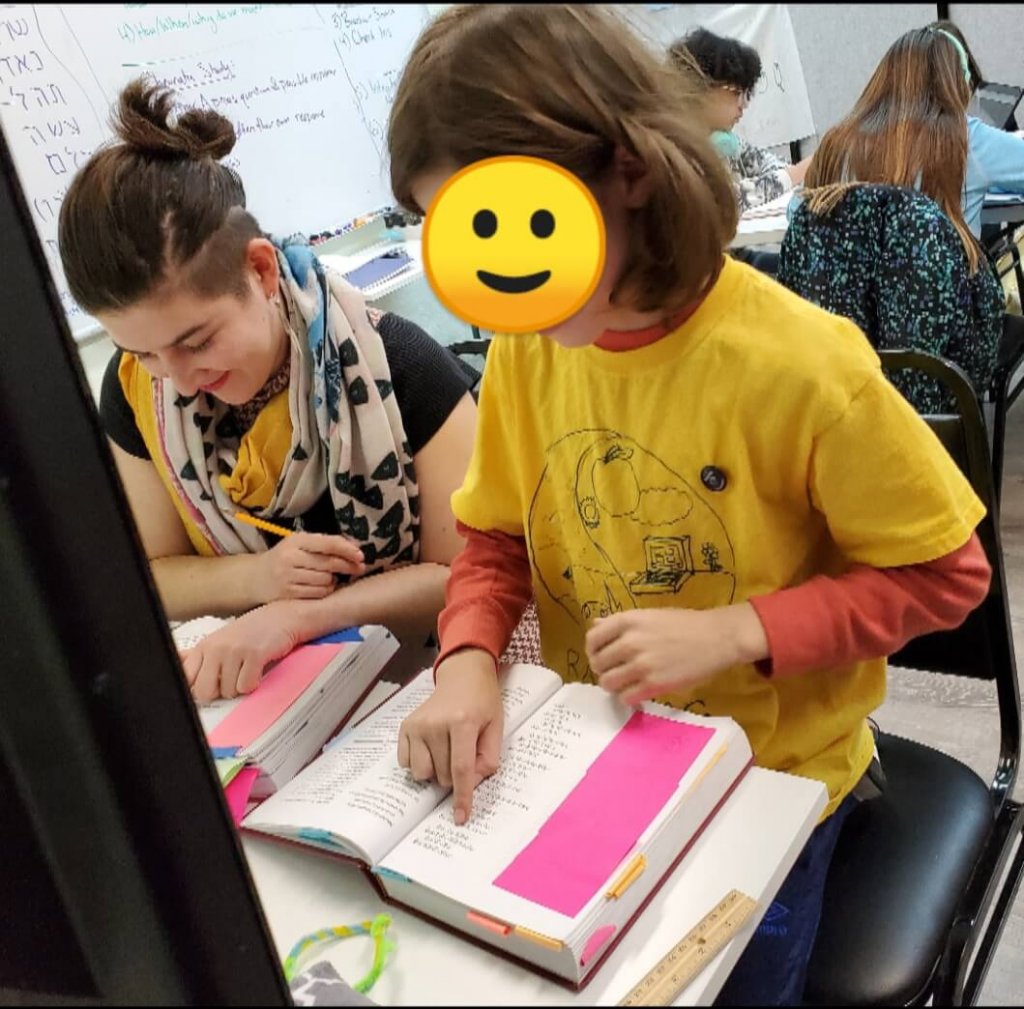
Tefilah mastery check-ins have long been one of my favorite parts of teaching BMitzvah. Seeing the cohort so proud of the work they’ve put into learning to read and chant a prayer is amazing. Our one-on-one conversations are always rich with meaning and new ways to think about the prayers. This has continued even now that Tefilah Mastery means clicking into a new breakout room on Zoom.

Since February, the BMitzvah cohort has been learning to lead the Torah service. Studying Ein Kamocha, many of the cohort pointed out the use of Av Harachamim (Compassionate Parent) to refer to God. They hadn’t heard this term for God before. Many took issue with God as compassionate, frustrated with God’s use of violence to solve problems in Torah they’ve studied. Remi asked “was God always considered to be a parent?” She talked about how this would mean God is related to us, a radical concept!
Ronia wrestled with Ein Kamocha, unsure why we were talking about rebuilding the walls of Jerusalem and dispersing God’s enemies at the beginning of the Torah service. I asked her what she wanted from the Torah service.
“Reassurance,” she said. A sense that knowledge was being passed down.
Later when mastering L’cha Adonai, I pointed out the line “You help and sustain all those who turn to You for support.” We agreed that that might be a moment of reassurance, though Ronia was skeptical of the exclusivity. Does God only help those who turn to God?
“There’s so much we don’t know about God. Why do we trust God?” Zahdi asks.
This group questions everything, and this makes the study so much more rich.
In our physical classroom, we made a wall of shoreshim (Hebrew word roots) that come up in our prayers. Each student translates and studies one shoresh for each tefilah they master. These words weave through our liturgy and give us a sense of the important and recurring concepts:
- אור light
- זכר remember/memory
- נתן give
- לב heart
- יחד together

In our mastery check-in for Ein Kamocha, Zoey pondered how we can connect to the idea of the first temple, which can feel very foreign to us. She talked about how our synagogues have similar things to the first temple: an ark, candles, holy words in Torah or on tablets.
“Synagogues today are like descendants of the Temples,” she said.
L’dor vador. From generation to generation and from the First Temple to our modern synagogues to a breakout room in Zoom, studying tefillot and engaging in prayer leads to the most profound dialogues.
